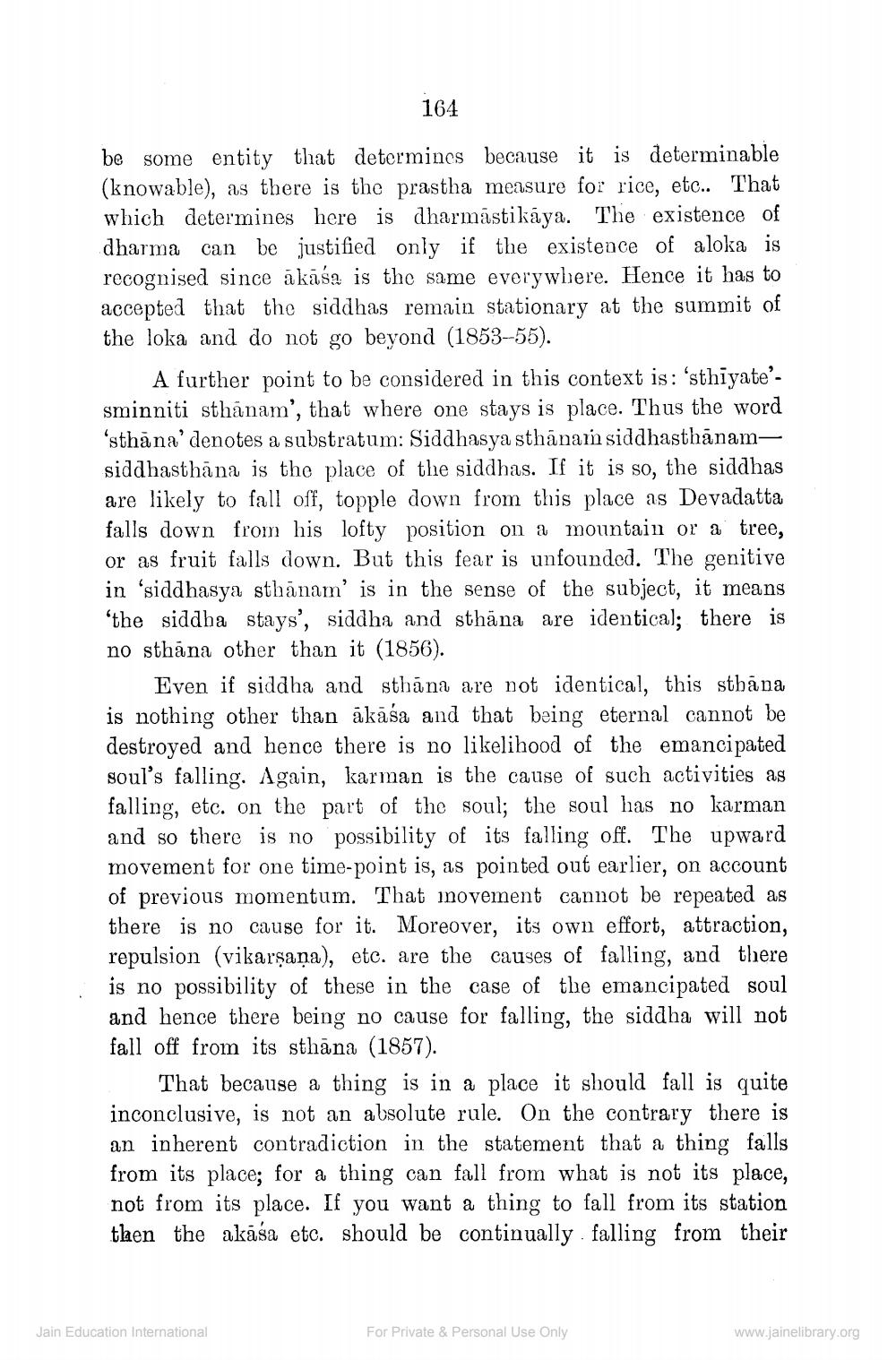________________
164
be some entity that determines because it is determinable (knowable), as there is the prastha measure for rice, etc.. That which determines here is dharmāstikāya. The existence of dharma can be justified only if the existence of aloka is recognised since ākāśa is the same everywhere. Hence it has to accepted that the siddhas remain stationary at the summit of the loka and do not go beyond (1853-55).
A further point to be considered in this context is: ‘sthiyate'sminniti sthānam', that where one stays is place. Thus the word 'sthāna' denotes a substratum: Siddhasya sthānam siddhasthānamsiddhasthāna is the place of the siddhas. If it is so, the siddhas are likely to fall off, topple down from this place as Devadatta falls down from his lofty position on a mountain or a tree, or as fruit falls down. But this fear is unfounded. The genitive in 'siddhasya sthanam' is in the sense of the subject, it means 'the siddha stays', siddha and sthāna are identical; there is no sthāna other than it (1856).
Even if siddha and sthāna are not identical, this sthāna is nothing other than ākāśa and that being eternal cannot be destroyed and hence there is no likelihood of the emancipated soul's falling. Again, karman is the cause of such activities as falling, etc. on the part of the soul; the soul has no karman and so there is no possibility of its falling off. The upward movement for one time-point is, as pointed out earlier, on account of previous momentum. That movement cannot be repeated as there is no cause for it. Moreover, its own effort, attraction, repulsion (vikarşaņa), etc. are the causes of falling, and there is no possibility of these in the case of the emancipated soul and hence there being no cause for falling, the siddha will not fall off from its sthāna (1857).
That because a thing is in a place it should fall is quite inconclusive, is not an absolute rule. On the contrary there is an inherent contradiction in the statement that a thing falls from its place; for a thing can fall from what is not its place, not from its place. If you want a thing to fall from its station then the akāśa etc. should be continually falling from their
Jain Education International
For Private & Personal Use Only
www.jainelibrary.org




